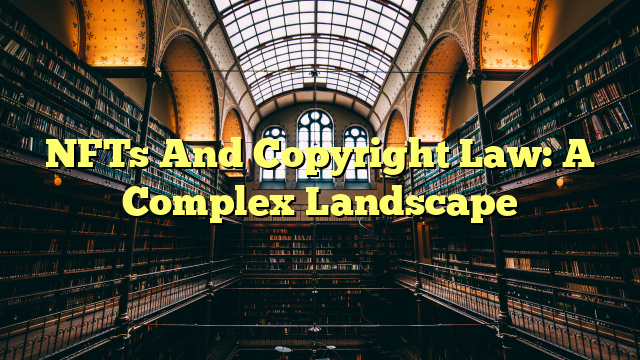Table of Contents
Introduction
NFTs, or non-fungible tokens, have gained significant attention in the digital art world. These unique digital assets have revolutionized the way artists can sell and monetize their work. However, the intersection of NFTs and copyright law raises complex legal questions.
Do copyright laws apply to NFTs?
Copyright laws generally protect original works of authorship, including visual art, music, and literature. NFTs, as digital representations of these works, can potentially be subject to copyright protection. However, the legal application of copyright laws to NFTs is still evolving.
One challenge is determining the ownership and rights associated with an NFT. While the ownership of the token itself can be easily tracked on the blockchain, the ownership of the underlying copyrighted work may be more complex. Artists may retain copyright ownership even after selling an NFT.
Additionally, the unauthorized use or reproduction of an NFT-protected work may still infringe on the artist’s copyright, even if the infringer does not possess the NFT itself.
Does NFT have copyright issues?
Yes, NFTs can raise copyright issues. One concern is the potential for unauthorized copying or distribution of the digital artwork represented by an NFT. While the blockchain technology behind NFTs provides a level of transparency and traceability, it does not prevent unauthorized duplication of the underlying work.
Another issue is the potential for multiple NFTs representing the same artwork. This can create confusion and dilute the value of the original NFT. Artists may need to take additional steps to protect their work and ensure that only one authentic NFT exists for a particular piece of art.
What are the legal issues surrounding NFT?
Legal issues surrounding NFTs extend beyond copyright concerns. One significant issue is the potential for fraud or misrepresentation in the sale of NFTs. Due diligence is essential for buyers to ensure they are purchasing authentic and legally obtained NFTs.
Another legal consideration is the potential for contractual disputes. Smart contracts, which govern the sale and transfer of NFTs, may contain terms and conditions that can lead to disagreements between parties. Clear and enforceable contracts are crucial to avoid legal disputes.
Is NFT considered an intellectual property?
Yes, NFTs can be considered a form of intellectual property. They represent ownership rights to a unique digital asset, which can include copyrighted works. However, it is important to note that not all NFTs necessarily involve intellectual property. Some NFTs may represent virtual goods or collectibles that do not have copyright protection.
Conclusion
The intersection of NFTs and copyright law presents a complex legal landscape. While copyright laws can potentially apply to NFTs, the specific rights and ownership associated with these digital assets require further legal clarification. Artists and buyers should navigate this landscape with caution and seek legal advice to protect their interests.

